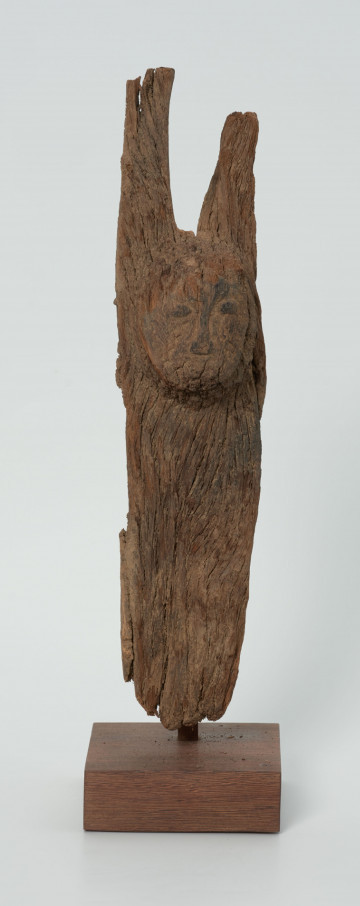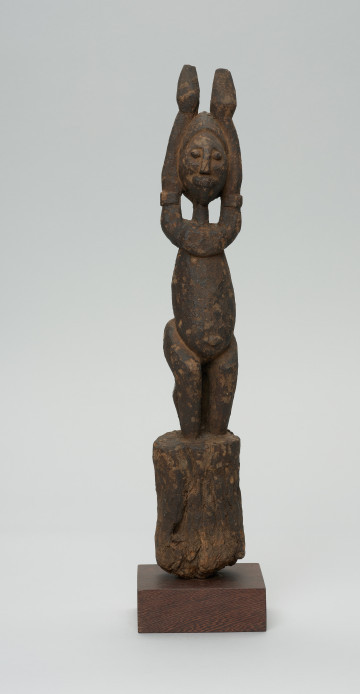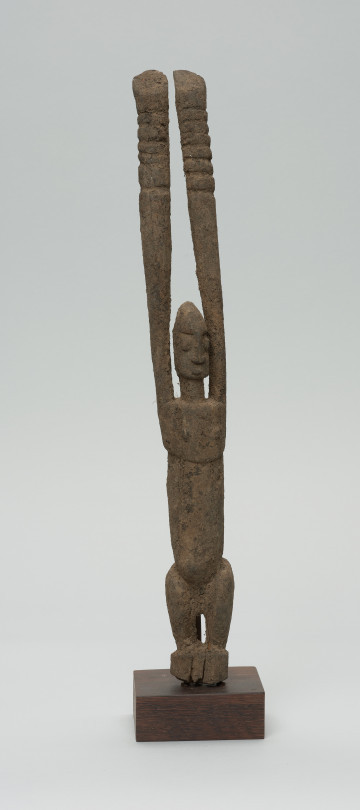
Figure - ancestor
między 1901 — 1950
National Museum in Szczecin
Part of the collection: Collection of Dogonian art
The Dogon people are primarily farmers. The calendar of field works and the success of the harvest depend on the timely start of the rainy season. The Dogon know and use many ways to bring rain. One of them is to make offerings on special altars called andugo (the word ana in the Dogo-so language means rain). The recipients of these offerings are the Nommo deities created by the god Amma, right after the creation of the world. They appeared as four pairs of twin perfect beings. One of them was Nommo Die currently living in heaven next to the god Amma. There he acts as a steward distributing rain. He manifests his presence on earth through storms, lightning and a rainbow called nommo sizu (the way of Nommo). According to the Dogon, the symbol of the twin deities of water on earth is the mannogo ble catfish (Heterobranchus bidorsalis) living in the waters of the Niger. The altars of andugu are built of stones, various wooden figures are placed on it, including those depicting androgynous figures or those covering their faces with their hands, as well as metal objects. According to the inhabitants of the Bandiagara Escarpment, the stars of the rainy season are the Tolo Dyuno Pleiades, which begin to be visible in May, the month that marks the beginning of the fieldwork period. The statue shows the figure of an ancestor with his hands raised in the air. This gesture is interpreted as a prayerful effort to unite earth and sky. The sign of this alliance is the rain, so important for farmers. It is believed that originally the Tellem, mysterious people who inhabited the Bandiagara Escarpment before the arrival of the Dogon, carved their ancestors in this way. The motif became part of the Dogon tradition and today the connection with the Tellem is only evidenced by the name tellem, which is used to describe the figures.
Ewa Prądzyńska
Author / creator
Dimensions
cały obiekt: height: 103,5 cm, width: 17,5 cm
Object type
figure
Creation time / dating
Creation / finding place
Identification number
Location / status

między 1901 — 1950
National Museum in Szczecin

między 1901 — 1950
National Museum in Szczecin

między 1901 — 1950
National Museum in Szczecin
DISCOVER this TOPIC
National Museum in Lublin
DISCOVER this PATH
Educational path